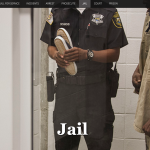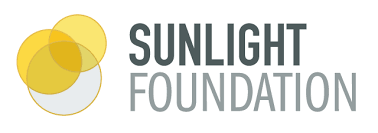Here’s a month-by-month look at some of the things we’ve done this year.
January – The Launch of Expunge.io

Chris Rudd of the Mikva Challenge Juvenile Justice Committee (JJC)
Expunge.io is a great example of how community organizing is just as important part of what we do as the coding aspect of our work. The idea for the app came out of the #CivicSummer program that Smart Chicago was doing with Mikva Challenge. Students in Mikva’s Juvenile Justice Committee (JJC) expressed a concern that most people with juvenile records weren’t aware that they needed to get those records expunged. We invited developer Cathy Deng to our last #CivicSummer session, and there she met Chris Rudd of the JJC and connected with with us over Twitter. She ended up creating the app and working closely with Legal Aid Foundation Chicago to help design the ‘quiz’ that determines eligibility for expungement. The app then connects users to Legal Aid Foundation Chicago where they can then get help with expunging their record.
February – Chicago releases new OpenData Report
The City of Chicago plays an extremely important role in Chicago’s innovation ecosystem. The city looks at data as fuel for transparency, innovation, and for businesses. The open data report published at the beginning of the year highlighted the progress and laid out their plan for 2014. That plan included releasing more data sets (which they did), moving to reform procurement (which they are), better coordinating with the county, and launching the data portal status blog (done).
In addition to these key initiatives, the Chicago Department of Innovation and Technology has open-sourced the toolkit they use to connect their business systems with the data portal. This is a huge development and will help lower the barriers for cities to help open up their data.
The data the city provides and more importantly their engagement with the community helps with all the initiatives of Chicago’s civic innovation community.
March – Josh Kalov joins Smart Chicago to help open up Cook County data
At the end of last year, the Cook County board voted on an open data ordinance and made a deal with Smart Chicago to help open up the county’s data. In March, Smart Chicago contracted with Josh Kalov to assist in this role.
Kalov has been a big part of the civic hacking community from the very start working on banner projects such as schoolcuts.org and helping to lead the education breakout at OpenGov Hack Night.
You can check out our progress here.
April – The Launch of Crime & Punishment in Chicago
The Crime and Punishment in Chicago project provides an index of data sources regarding the criminal justice system in Chicago. We aggregate sources of data, how this data is generated, how to get it, and what data is unavailable. This project is a key way we are using the Civic Works grant to use data journalism to uncover the value of data and cover the stories behind the data.
Smart Chicago Collaborative was proud to launch this latest Civic Works Project with FreeGeekChicago, and the Chicago Justice Project.
May – National Day of Civic Hacking
For this year’s National Day of Civic Hacking, Smart Chicago partnered with SecondMuse to help a series of how-to posts to help share the knowledge we’ve gained in Chicago. As an example, here’s our post and video on how to use Twilio to have your apps text. The event again was anchored by the indomitable Christopher Whitaker.
For this year’s events, we wanted to put the problem owners up front. We partnered with kCura who helped us host the event. (They also had quite the years themselves – winning the CEC’s Merrick Momentum Award.) We then asked the Red Cross, Lakeview Pantry, and SWOP to speak about their technology issues. We also spoke at the Adler Planetarium – which held Chicago’s Hack for Youth event.
National Day of Civic Hacking was a huge success nationwide and we look forward to next year’s event.
June – Code for America announces Midwest Brigade Pilot
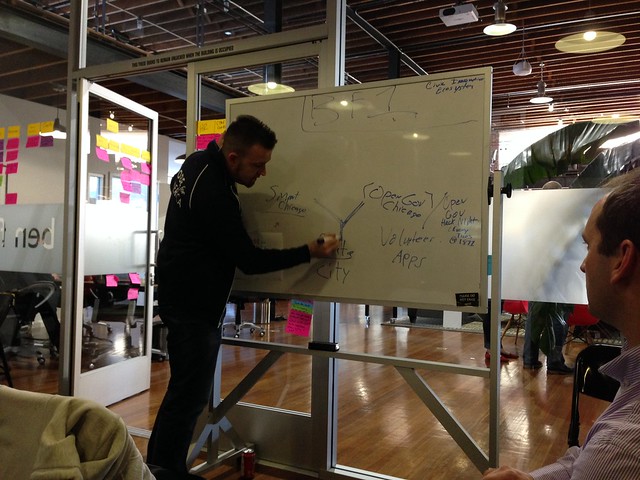
Christopher at the Code for America Summit – Photo by Burt Lum
In June, Code for America announced that the Midwest has been selected for the first Code for America Regional Brigade Program. The Midwest Regional Brigade program will support existing Code for America brigade cities as well as work to expand the number of brigade cities in the region. The pilot program was led by Smart Chicago consultant and current Chicago Brigade Captain Christopher Whitaker. The pilot has now been deemed a success and will be made permanent with additional Brigade regions being created in the South and the East Coast.
July – Cook County Land Bank Training
Smart Chicago took part in the Cook County Land Bank Training. We recorded all the sessions and provided a re-cap of the proceedings. Christopher Whitaker and Joshua Kalov of our team also created and taught the curriculum around researching vacant properties.
August – Chicago School of Data
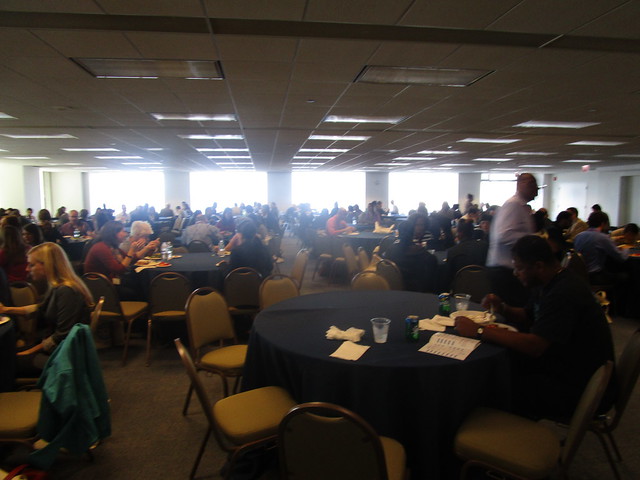
The Smart Chicago Collaborative spent the spring researching Chicago people & organizations who work to utilize data in the service of the public good. We hosted a conference in September where we meet & shared with each other, and are working on publishing a book describing this ecosystem in early 2015.
The Chicago School of Data conference was an amazing event with over three hundred people participating in roundtable discussions about the issues in our ecosystem.
We’ll have more information in the next few weeks when we release our book.
September – Code for America Summit
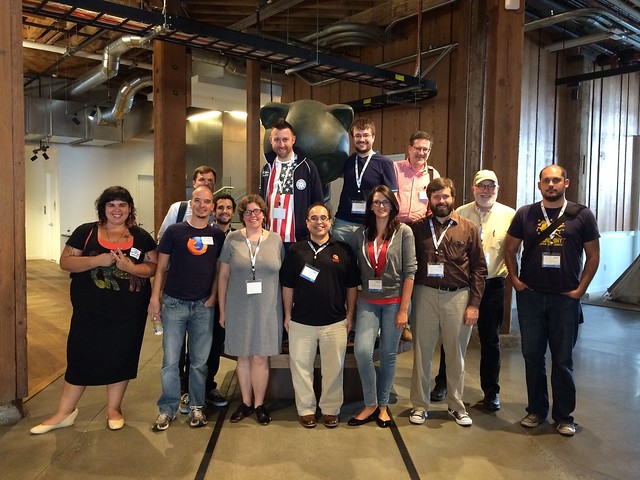
Chicago’s civic innovation community was out in force during the Code for America Summit. Many Smart Chicago projects were highlighted onstage.
November – International Fellow Rakesh Dubbudu
Smart Chicago hosted Dubbudu for a few weeks as he learned about civic innovation in Chicago. Rakesh works as an open data advocate in India as one of the co-conveners of the National Committee for People’s Right to Information.
December – Three CivicWork Project Launches
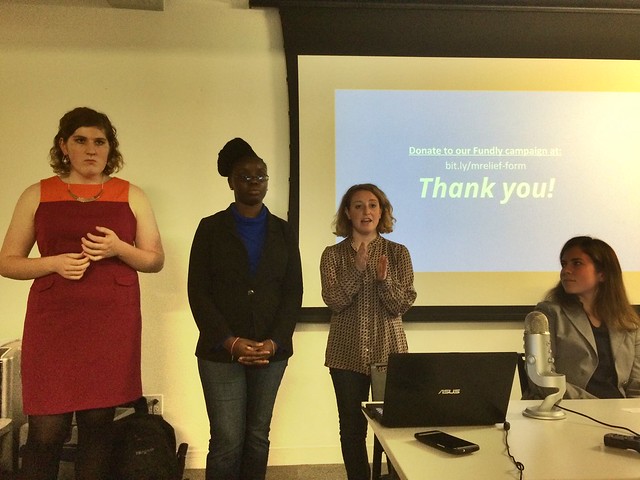
Over the past few weeks, the Smart Chicago Collaborative has launched (or helped others launch) three new projects as part of our CivicWorks Project. The CivicWorks Project is program funded by the John S. and James L. Knight Foundation and the Chicago Community Trust to spur & support civic innovation in Chicago. Our goal is 200 pieces of content that explain civic data to regular people, 5 apps that solve government problems, and 5 apps that solve community problems.
There’s been a tremendous amount of work throughout the year and we’re super proud to have been involved in these projects.
We’re going deeper in 2015
In the year ahead, Chicago’s civic innovation community must go deeper in terms of our engagement and to capitalize on the immense momentum of this movement. Smart Chicago is proud to be a worker in these fields. More to come!



